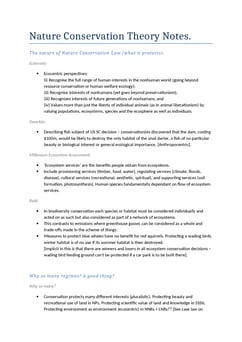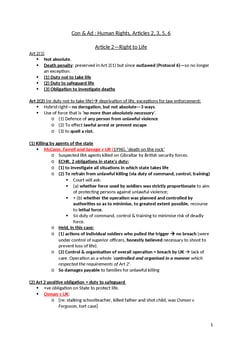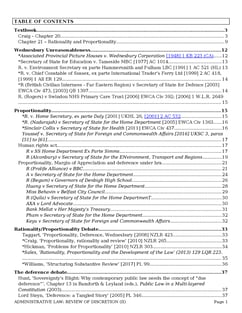R v Inspectorate of Pollution, ex parte Greenpeace (No.2) [1994] 4 All ER 329
Judgement for the case R v Inspectorate of Pollution, ex parte Greenpeace (No.2)
Table Of Contents
Plaintiff sought JR of Defendant’s decision to allow British Nuclear Fuels Plc to discharge some nuclear waste from Sellafield to test a new thermal oxide processing plant.
NB this is at the stage of requesting permission for JR in the high court (not the JR hearing itself).
The court granted permission to seek JR, holding that Greenpeace had standing.
Otton J
He adopted Lord Donaldson MR’s approach in R v Monopolies and Mergers Commission, ex p Argyll Group PLC that the permission stage will only lead to a refusal for lack of locus where Plaintiff is a “meddlesome busybody”.
However if this is not the case, and there is no other reason for refusing application, Plaintiff “may expect to get leave to apply, leaving the test of interest or standing to be re-applied as a matter of discretion on the hearing of the substantive application. At this second stage, the strength of the applicant’s interest is one of the factors to be weighed in the balance.”
Greenpeace isn’t a mere busybody: it has official status with international organisations (e.g. UN accredited) and its concern is “genuine”. Also Greenpeace, unlike individuals who could bring a challenge, such as a resident near the new plant, would not have the resources needed, unlike Greenpeace, to mount a “well-informed” challenge with the resources to allow the courts to do justice between the parties.
Also if an individual brought a case with legal aid and lost, Defendant would be without an effective costs order. Whether ‘interest groups’ are granted locus will depend on a case by case basis.
He refused to follow the restrictive approach of Schiemann J in Rose Theatre Trust.
RELATED CASES
For Further Study on R v Inspectorate of Pollution, ex parte Greenpeace (No.2)

A collection of the best Environmental Law notes the director of Oxbrid...

A collection of the best GDL notes the director of Oxbridge Notes (an O...
Need instant answers? Our AI exam tutor is here to help.
Ask questions 🙋 Get answers 📔 It's simple 👁️👄👁️
Our AI is educated by the highest scoring students across all subjects and schools. Join hundreds of your peers today.
Get StartedSimilar Cases
Related Product Samples
These product samples contain the same concepts we cover in this case.

 Since 2010, Oxbridge Notes has been a trusted education marketplace, supplying high-quality materials from top achievers at universities like Oxford, Cambridge, LSE, Harvard, and Yale.
Since 2010, Oxbridge Notes has been a trusted education marketplace, supplying high-quality materials from top achievers at universities like Oxford, Cambridge, LSE, Harvard, and Yale.